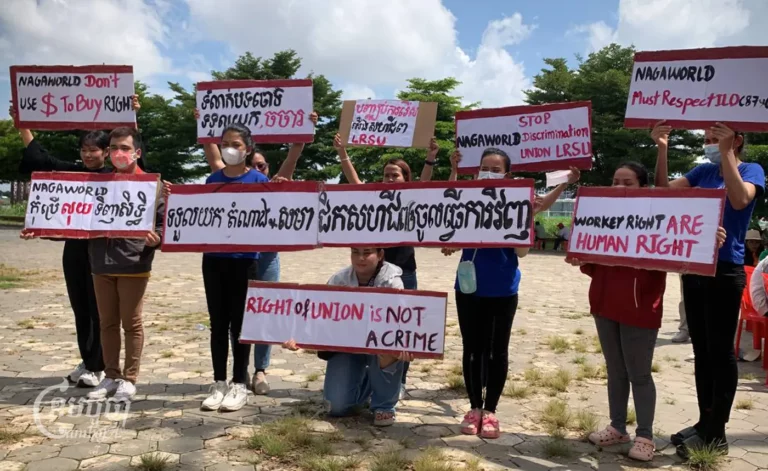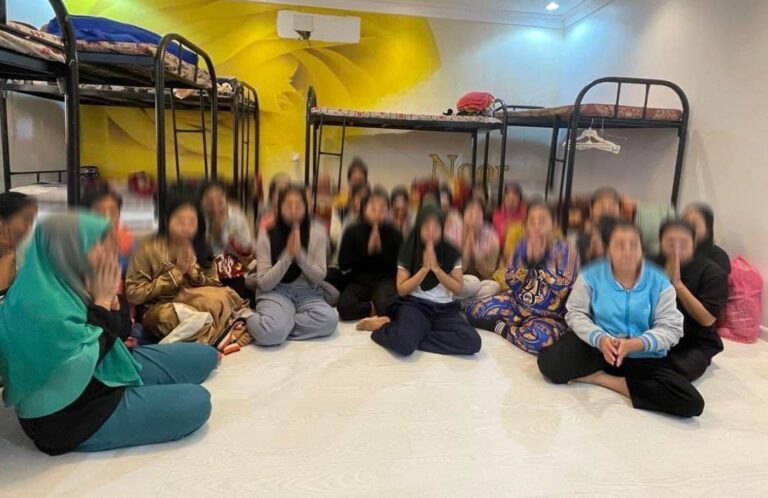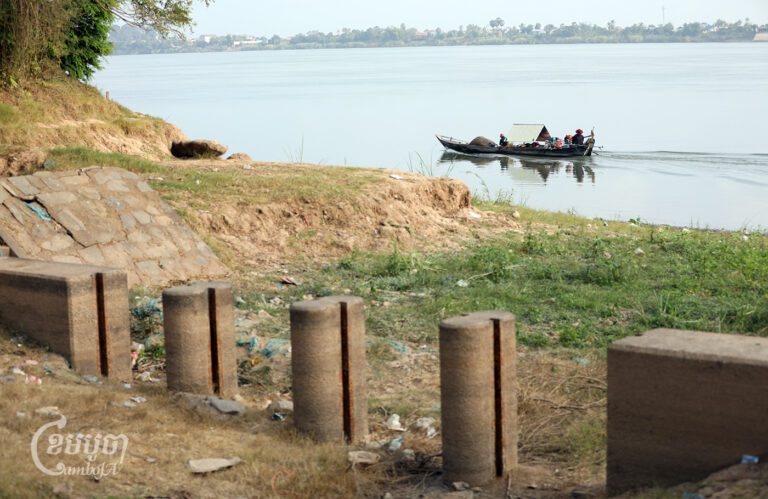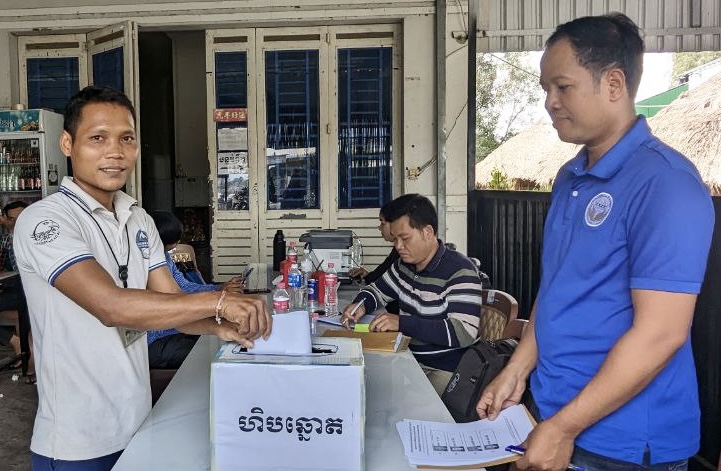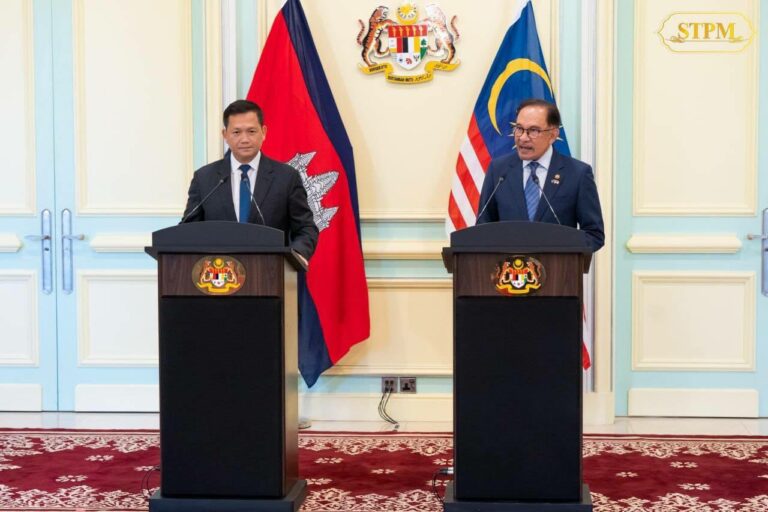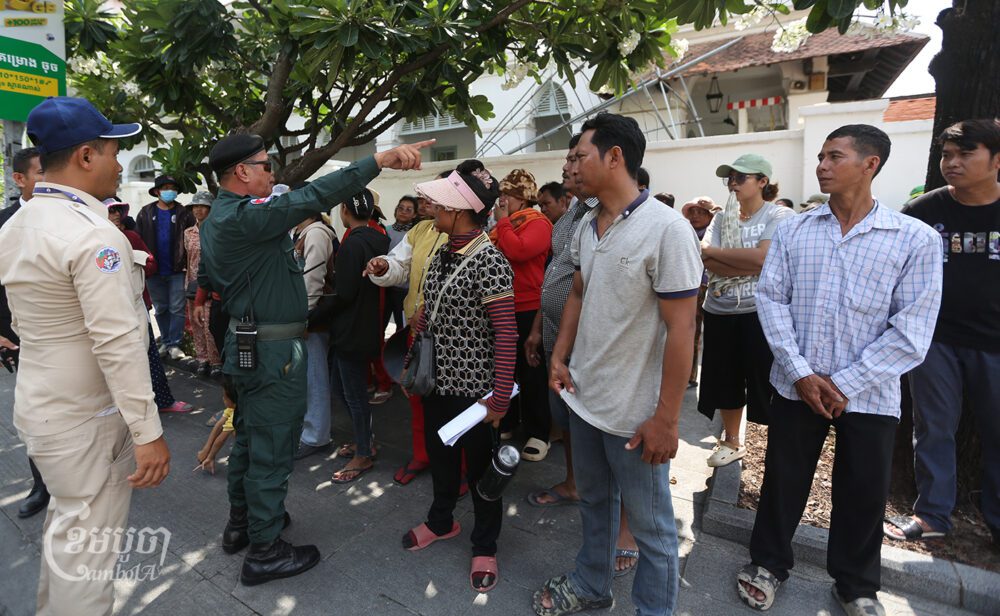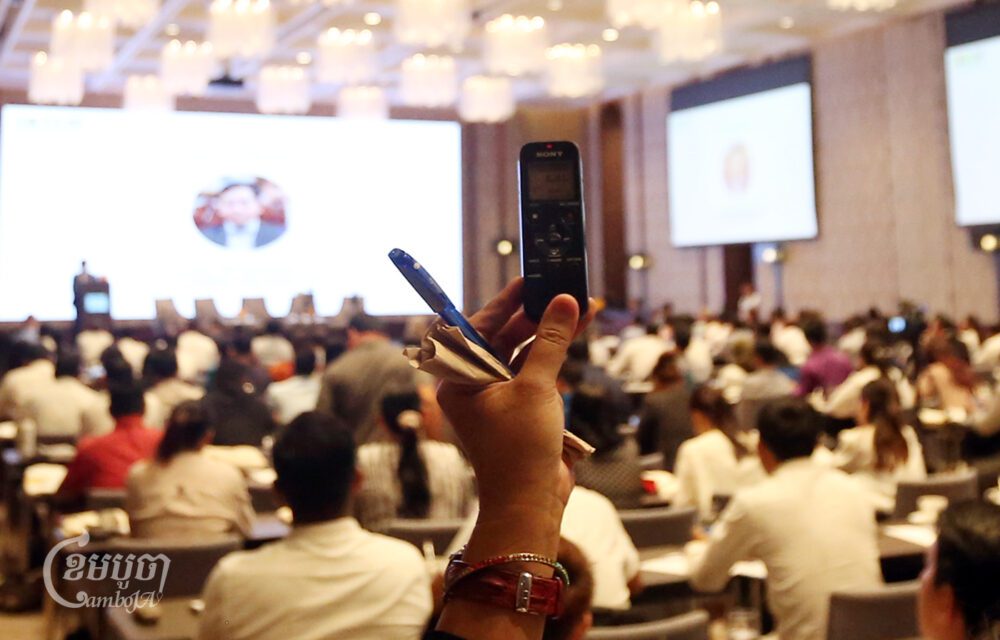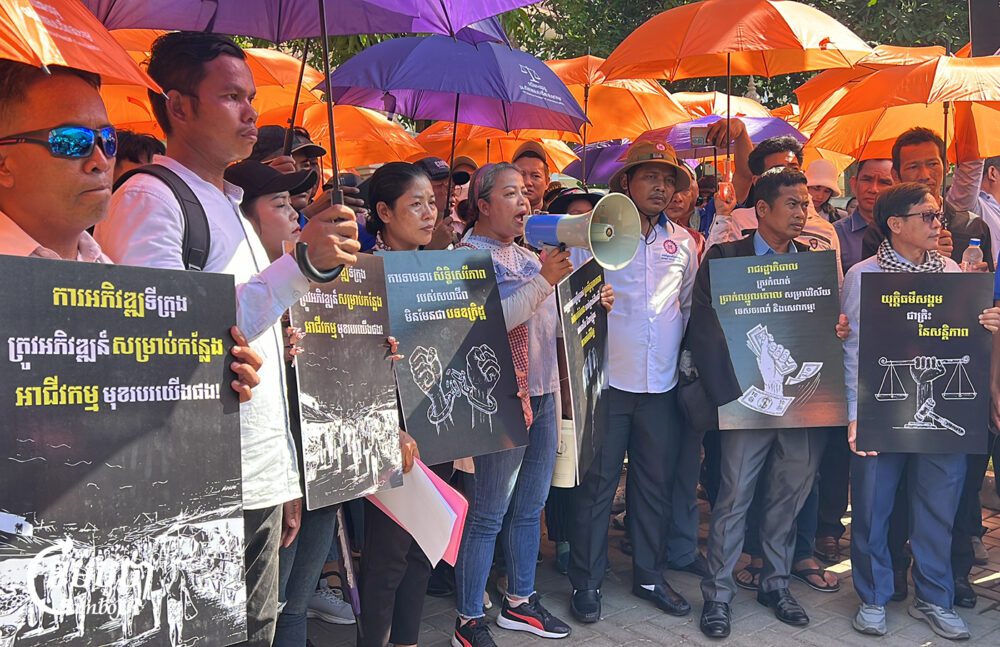Up to 200,000 Cambodian migrant workers’ visas will expire by the end of April as Thai authorities warn Cambodian workers including foreigners from Laos and Myanmar to renew their visas before the month-end deadline.
Thai deputy government spokesman Kharom Polpornklang said a multi-party memorandum of understanding (MoU) on labor cooperation, which led to the hiring of migrant workers in Thailand, will expire on April 30. As such, they must leave Thailand before the date or risk facing legal action.
The Thai government decided to extend the four-year work licenses, which expired in January this year, till the end of April, prompting firms, which want to keep the workers, to expedite the necessary paperwork.
Employers are urged to submit reemployment applications as soon as possible so that workers’ jobs can be reinstated in Thailand.
In order to expedite the rehiring process and enable the workers’ prompt return to Thailand, the Employment Department of the Thai Labour Ministry has collaborated with the three governments.
The Centre for Alliance of Labour and Human Rights (CENTRAL) in Thailand, Loeng Sophon told CamboJA that according to the Thai law, Cambodians and other foreign workers in Thailand hired under the MoU need to return home to apply for a visa again to work with the same or new employer.
There are scores of Cambodians working in Thailand currently, with over 200,000 hired under the MoU.
“Some of the workers worked for less than four years. They either changed employers or returned to their home countries [in between]. There are around 200,000 or 300,000 people whose four-year visas will expire,” said Sophon.
He opined that although Cambodian leaders visited Thailand, there has not been any outcome on this labor matter.
“We have not seen anything yet, whether in terms of visa or passport fees,” he said, adding that workers’ living conditions are not safeguarded by law. However, during Khmer New Year, workers managed to travel across the border without paying fees as the Cambodian government sought Thai government’s approval to waive them.
Sophon said according to international labor law, migrant workers have a right to return home during festivals without having to seek permission as it is a humanitarian gesture.
Sophon said many Cambodian workers in Thailand still face problems of employers not complying with labor laws. Workers also experience difficulties when changing jobs as well as violations of workers’ rights.
Sophon believes that the Thai government should implement measures to ensure that employers comply with labor laws.
In addition, the Cambodian government should keep Cambodian migrant workers informed about the changes, so that they can inform their employers to expedite their paperwork. This will give them time to renew their visas as some employers do not pay much attention to the visa extension.
“In Thailand, some workers become victims unknowingly. Sometimes their employers do not process their paperwork to live there legally. For example, when workers have an accident and seek legal help, they do not receive it, because employers failed to send the documents to the Ministry of Labor.”

On International Migrant Workers’ Day last year, the Center for Labor Alliances and Human Rights (Central) stated that many Cambodian migrant workers could not migrate despite the MoU because it was costly, time consuming and the process was complex. Hence the reason why workers choose to migrate through brokers or relatives rather than legally through recruitment agencies.
Ministry of Labor and Vocational Training spokesperson Katta Orn told CamboJA that they will cooperate with Thai ministries and institutions to facilitate the work process so that workers can work legally again and have their rights and benefits met.
Orn mentioned that there are more than 1.2 million workers working legally in Thailand. As for those hired through the MoU, visas for about 100,000 of them will be expiring on the said date.
However, the ministry encouraged companies to continue sending workers to Thailand in accordance with the MoU signed between the two countries as it was legal.
According to CENTRAL’s figures, about 2.2 million Cambodians are working abroad, but a report by the Cambodian Ministry of Labor stated that by 2023, about 1.3 million migrant workers might be working in Thailand, South Korea, Japan, Malaysia, Hong Kong, Singapore and other countries.
Pung Poeut, 40, a former laborer who worked in Thailand about eight years ago, said his salary was not enough to cover his expenses and he also experienced pressure from his employer as well as labor rights issues.
Poeut returned to Cambodia and is working as a truck driver now as he can save money to support his family and not feel oppressed.
“It was too hard [in Thailand]. I received a week-long suspension when I did not join a meeting. Our Cambodian workers are under a lot of pressure there,” said Poet. “I ask the prime minister to help workers like us.”



